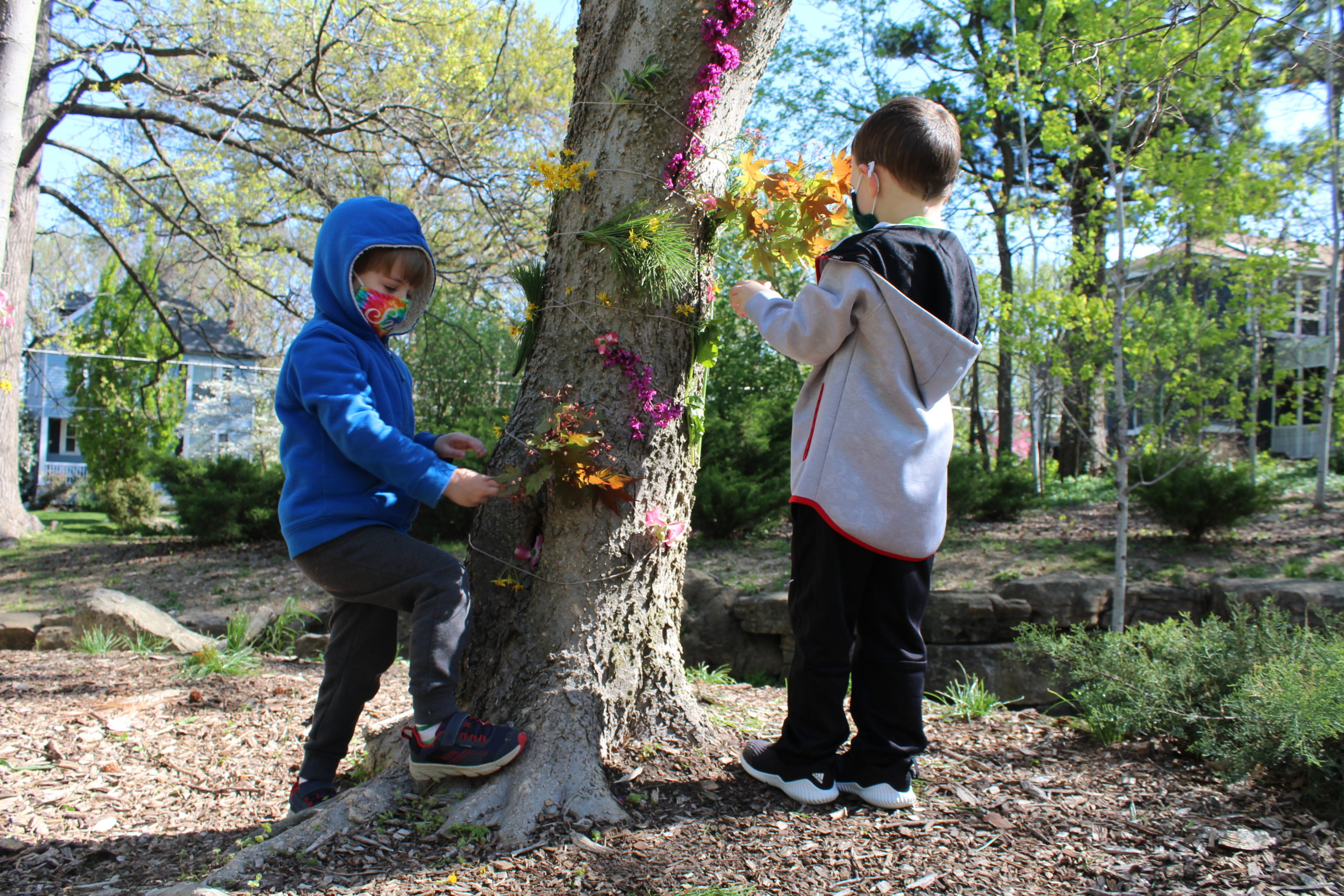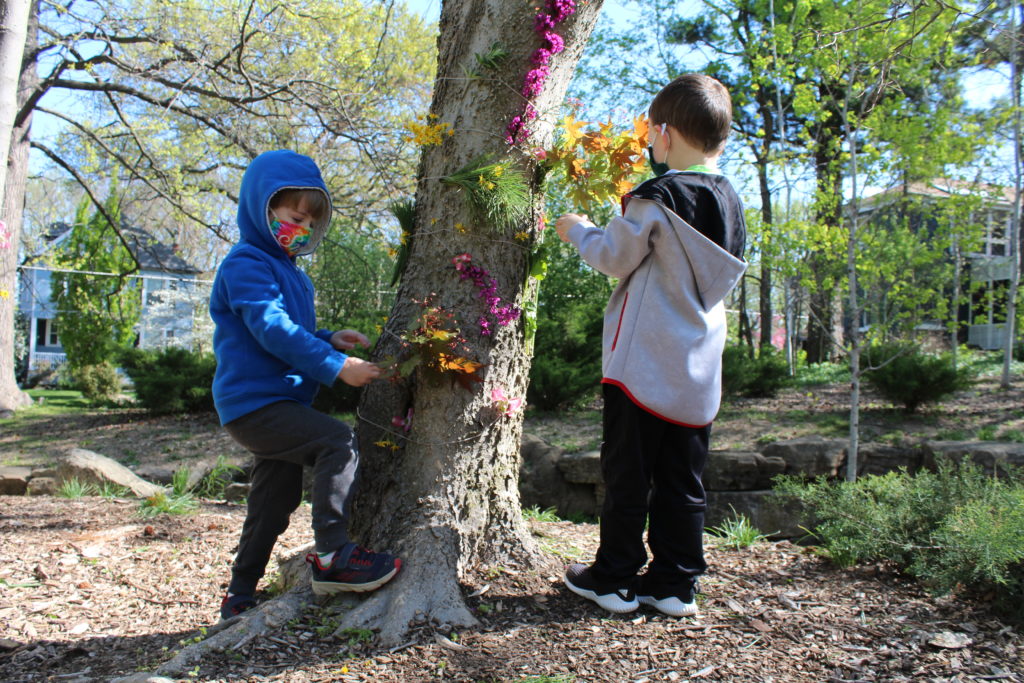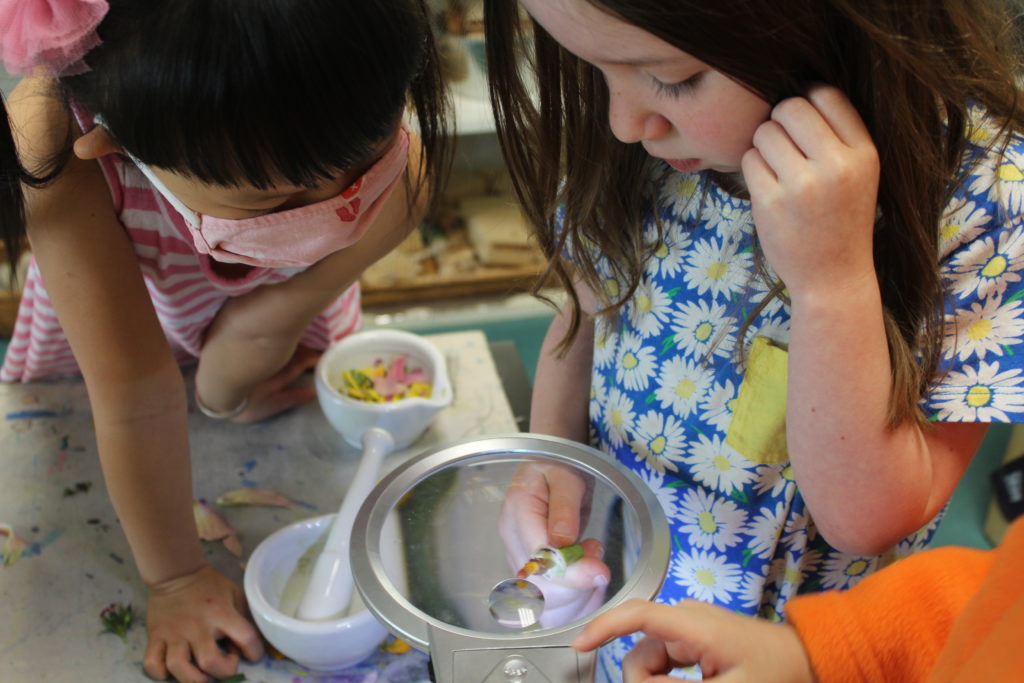
 As a local parent, I was first aware of The College School as the site of a creative, respectful Early Childhood program. Nineteen years ago, that Reggio-inspired program offered me a teaching position that launched my TCS professional journey. I will forever be grateful for how that experience opened my eyes to the incredible intelligence and potential of our youngest learners.
As a local parent, I was first aware of The College School as the site of a creative, respectful Early Childhood program. Nineteen years ago, that Reggio-inspired program offered me a teaching position that launched my TCS professional journey. I will forever be grateful for how that experience opened my eyes to the incredible intelligence and potential of our youngest learners.
For thirty years, educators at The College School have been inspired by an approach to early childhood education that was developed and nurtured following World War II in the small Italian city of Reggio Emilia. The three primary beliefs of this approach are:
• A positive image of the child as someone with strong potential for development and with rights who learns through the hundred languages belonging to all human beings.
• Children learn by being active participants.
• Play is an important part of learning and early development.
Beginning in the late 1980s, an international buzz developed around the Reggio Emilia Approach. The Hundred Languages of Children exhibit, chronicling the work of children and adults in the Reggio Emilia preschools, toured the world and offered professional development programs for educators. The exhibit was hosted by Webster University in the fall of 1991, spurring even more interest and excitement about this approach along with the desire to visit Reggio Emilia. After seeing the exhibition, Jan Phillips, former TCS teacher and Director, came away wanting “to see if preschool kids really did the artwork on display.” In December 1991, Newsweek published an article declaring Reggio Emilia the best early childhood program in the world.
In the spring of 1992, Jan Phillips along with four educators and a parent from TCS, participated in a study tour of the Reggio Emilia schools led by Brenda Fyfe of Webster University. The group was so impressed with what they saw that Jan returned to St. Louis and wrote a grant proposal to the Danforth Foundation to provide three years of funding to help TCS implement the approach, conduct action research, and mentor other schools through networking and workshops. Jan noted that “[t]he thing I found particularly interesting was the way the teachers helped children see more deeply and think more in-depth when doing their artwork and writing.”
The grant was funded, and Louise Cadwell was hired as a preschool teacher at TCS. She also served as a consultant to help incorporate the Reggio Approach into early childhood programs at five area schools, including TCS. Louise was an intern in the Reggio Emilia preschools the previous year and had met Jan and the others from TCS when they toured Italy.
During the second year of the grant program, Louise moved into the newly-created atelierista position, and TCS became the demonstration site for educators from other schools. Eight additional schools joined the St. Louis network, and both educators and parents worked hard to get the Reggio-inspired program off the ground. TCS teachers redesigned the early childhood space with the help of parent/architects Gay and Frank Lorberbaum.
St. Louis became a leader in the United States for Reggio-inspired work. Notable educators from Reggio Emilia spent time at TCS and other St. Louis schools involved in the grant. Their presence and guidance, while at times tough, were a great boost to the program. After the grant was completed, The St. Louis Reggio Collaborative was formed with The College School, Clayton Family Center, and The St. Michael School of Clayton. In 1997, Reggio Children’s Foundation worked with the Collaborative during a two-day conference “Adapting the Reggio Emilia Approach in U.S. Contexts.”
 One reason the Reggio Approach worked so well at TCS was its compatibility with experiential education and the common influence of the educational philosophies of Dewey, Piaget, and Vygotsky. “At their core, our Reggio-inspired spaces are experiential by nature. Hands-on, play-based learning is learning by doing, by having rich and meaningful first-hand experiences with a wide variety of unique learning materials, creative mediums, and social interactions,” notes Sarah Hassing, the TCS atelierista. “An important benefit of this approach is that it helps children learn to learn, to be inquisitive, curious, collaborative, and eager to explore the world around them. When we view children as protagonists of their own learning, we are acknowledging their competency in intellectually engaging with others and with the larger world.”
One reason the Reggio Approach worked so well at TCS was its compatibility with experiential education and the common influence of the educational philosophies of Dewey, Piaget, and Vygotsky. “At their core, our Reggio-inspired spaces are experiential by nature. Hands-on, play-based learning is learning by doing, by having rich and meaningful first-hand experiences with a wide variety of unique learning materials, creative mediums, and social interactions,” notes Sarah Hassing, the TCS atelierista. “An important benefit of this approach is that it helps children learn to learn, to be inquisitive, curious, collaborative, and eager to explore the world around them. When we view children as protagonists of their own learning, we are acknowledging their competency in intellectually engaging with others and with the larger world.”
Sarah Hassing believes TCS draws its biggest inspiration from the Reggio Approach’s image of the child. “As in Reggio Emilia, Italy, we at TCS hold a strong image of children as competent learners that bring their own experiences, knowledge, and expertise to our classrooms. We believe that our youngest learners are citizens of today whose voices are vital components of our community, here at school, and within the larger ones in Webster Groves and St. Louis, as well. You will see this in our classrooms through how we engage children with respect, trust, and admiration.”
Over the years, TCS educators have continued to seek professional development in the Reggio Approach through on-site visits to Reggio Emilia preschools and schools around the country that have successful Reggio-inspired programs. We have also hosted many visiting educators seeking inspiration for their programs. During the pandemic, we’ve taken advantage of online and digital programs through the Reggio Children organization. In addition, two of our early childhood teachers are working on their master’s degrees through a program with ties to the Reggio Approach.
The early childhood program at TCS is staffed with loving, passionate educators who are committed to carrying on the Reggio tradition and respecting each child. Our goals include ongoing professional learning inside and outside of the classroom and sharing those insights with colleagues, families, and the broader education community, utilizing a variety of tools for documentation of student thinking and experiences, making time for dialogue among colleagues to process and further the work within the program, and rebuilding a local network of Reggio practitioners in the St. Louis area. The vision, commitment, and hard work that have brought us to this point will continue to support our early childhood program going forward.


